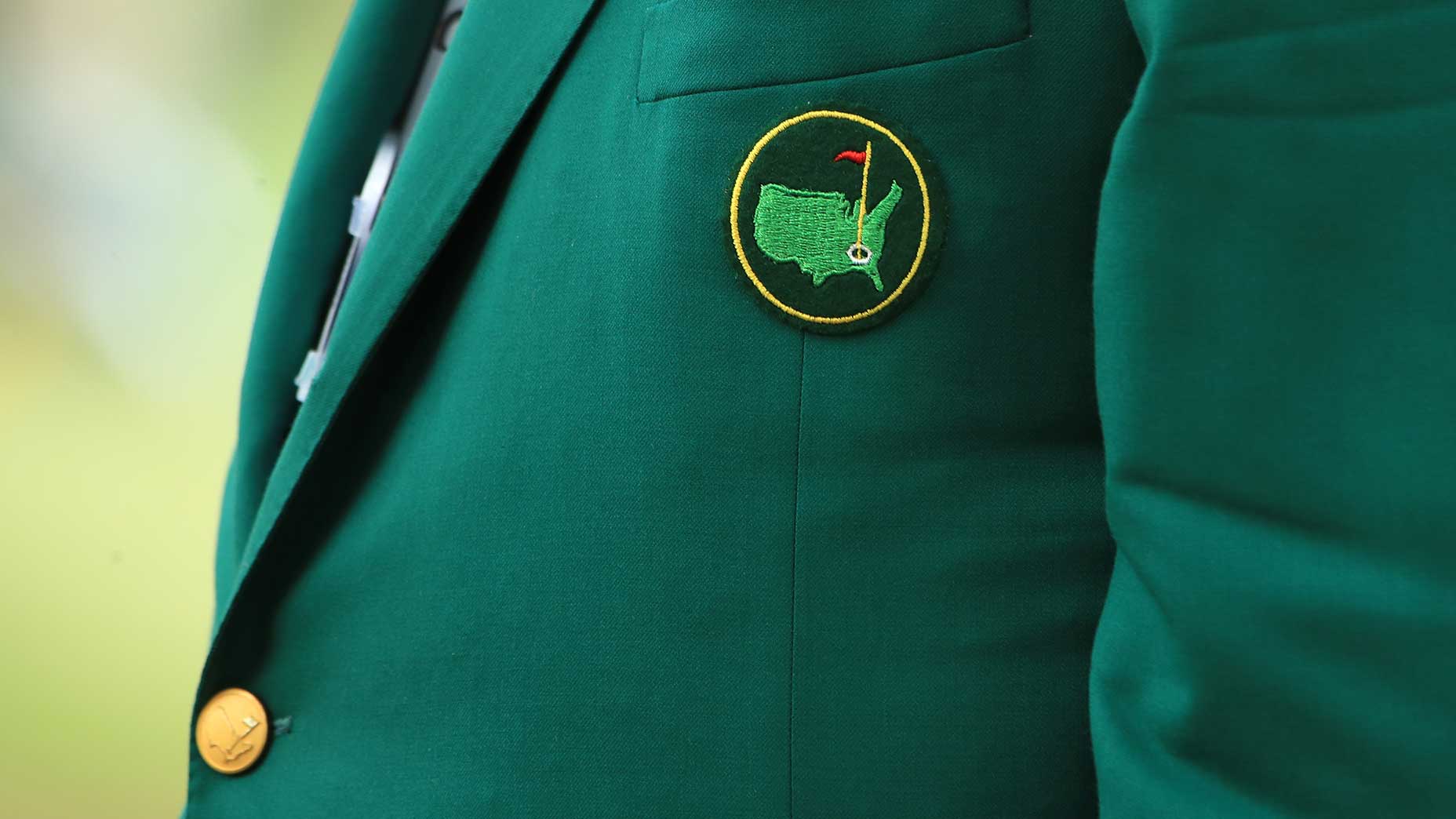
For the winner, it’s not as simple as just slipping the thing on. With the Masters’ renowned green jacket comes responsibility.
Getty Images
There are lots of fashion dos and don’ts. No white after Labor Day. No socks with sandals. And, for God’s sake, no black socks with sandals.
It’s rarer to find individual articles of clothing with their own rules. Augusta National’s green jacket is one such garment. Exclusive to ANGC members and Masters champions, the three-button single-breasted jacket was introduced in 1937 to make members identifiable to tournament patrons with questions and to waiters with the dinner bill. It was bestowed upon Masters winners starting with Sam Snead, in 1949, making him an honorary member — a privilege granted to all prior champions retroactively and to all future champions.
At a place where the pimento-cheese sandwich recipe is a closely held secret, information regarding the jacket’s protocol doesn’t hang on magnolia trees. Some diktat can be readily inferred. For example, the defending champion puts the jacket on the new champion, unless it’s a repeat winner, in which case Augusta’s chairman gets the job. And yes, detective, that jacket is merely for the ceremony, chosen among many on hand to more or less fit the winner. (Recently, officials began asking tournament invitees to submit their jacket size in advance.) Soon enough, it’s replaced by a custom-tailored version.
While some sound apocryphal, at least a few unusual stories involving the green jacket rest on good authority. The 1970 champion, Billy Casper, was indeed buried in his after the club granted the request by his wife. One reason we know the jacket generally isn’t allowed off property beyond the year following a win is the tale Gary Player likes to tell about getting into a brouhaha with ANGC majordomo Cliff Roberts, after the unwitting Player had taken the garment back home to South Africa and neglected to return it to Georgia on time. Augusta National is to tight lips as the Black Knight, bless him, is to loose ones.
That ANGC takes the green jacket dead seriously also can be seen through a legal lens. The club successfully trademarked GREEN JACKET in 2010 for various products and broadcasting services. A decade later, to secure rights in the design and appearance of the jacket itself, ANGC successfully registered its “trade dress” as a protected trademark: “[T]he mark consists of the colors green and gold where the color green is applied to the jacket and the color gold is applied to the three waist buttons and the two sleeve buttons on each arm of the jacket.”
So, there’s that. And the fact that the club hasn’t been shy about siccing lawyers on those trying to make a buck putting a blazer on the auction block. The last champion’s jacket successfully gaveled: Horton Smith’s, which went for $682,229 in 2013. Lawsuits and threats thereof have since kept other green jackets from hitting the market. (Per a family member of one deceased champion, the club does not offer them to the next of kin but keeps them in the Champions Locker Room.) ANGC’s view: It owns the jackets and merely loans them to members and Masters winners, ergo, per a 2019 U.S. Patent and Trademark Office filing, the jackets “cannot be sold or given to third parties under any circumstances.”
We promise, upon our own Augusta membership, to attempt no such thing. While we wait for that tap on the shoulder — realistically, winning the Masters is now beyond this 50-something 10-handicapper’s grasp — an honest-to-goodness former champion, on the condition of anonymity, schooled us with a few further details: 1.) The club reaches out to new champions on appropriate jacket etiquette. “I think they sent us an email,” he said, “basically saying, be respectful, take care of it, do the right thing. Of course, to be part of that illustrious group of past champions, you don’t want to upset anyone.” 2.) The jacket can be taken to social and media engagements during that year off property… maybe. “You have to request permission to do that,” he said. “You don’t want it to be seen in places that don’t fit in with Augusta’s traditions. It’s a symbol.” 3.) You don’t need to return the jacket already dry-cleaned. “The guys there take care of that.”
Sounds like our kind of place.
Additional reporting by Josh Sens and Dylan Dethier.









